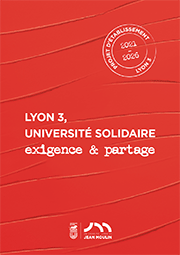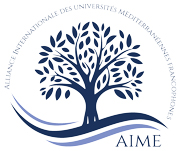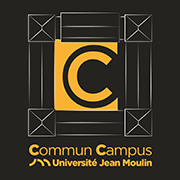AccueilRechercheProgrammes et productions scientifiquesThèsesThèses soutenuesThèses soutenues - 2006-2021Thèses soutenues - 2012
-
Partager cette page
- Recherche,
BENNETT OYARZU ép. RENARD Loreta Fabiola
L'adoption entre la France et le Pérou dans le cadre de la convention de la Haye du 29 Mai 1993
Publié le 30 avril 2012 – Mis à jour le 30 avril 2012
Thèse en Droit soutenue le 19 avril 2012
Pour ce travail nous analysons le Pérou comme État d'origine et la France État d'accueil. Nous développons dans un Chapitre préliminaire l’importance de la Convention de La Haye du 29 mai 1993. En Première Partie Le chemin vers l’adoption d’un enfant péruvien par des Français, où existe deux conditions d’un côté établir que l'enfant péruvien est soumis à une vérification de sa situation légale dans le but de déclarer son adoptabilité et de l’autre qu'il y a des candidats français aptes et qualifiés évalués par des autorités compétentes françaises afin de déclarer leur qualification et leur aptitude à adopter. En Deuxième partie La réalisation de l’adoption au Pérou par des Français, le Secrétariat National d’Adoptions est l’autorité centrale chargée de s’assurer que les obligations assumées par l’Etat péruvien soient accomplies dans le cadre de la Convention de La Haye. Les adoptants français doivent transmettre leurs sollicitations au Secrétariat National des Adoptions qui va les apprécier et conclure l’adoption par résolution administrative. Puis en Troisième partie L’après adoption, les parents adoptifs doivent demander la reconnaissance par les autorités françaises de l’adoption réalisée au Pérou. L’adoption plénière provoque la rupture des liens avec la famille d’origine. Celle-ci n’empêchera pas les enfants adoptés s’ils atteignent l’âge de la majorité ou même s’ils sont encore mineurs de désirer connaître leur famille biologique.
En guise de conclusion nous essayons de répondre à la question: L’adoption est-elle une véritable alternative à l’enfance abandonnée?
For this work we analyse the Peru like state of origin and the France like receiving State state. We develop in the chaptre preliminary the importance of the Hague’s Convention of 29 th Mai 1993. In the first Part the way to the peruvian’s child adoption by the french’s candidats where existe two conditions the one side the peruvien child who is submis of verification their legale situation with the intention of declare their adoptability and the other side there are the french’s candidats ables et qualify évalués by the french’s authoritys compétents with the intention of declare their qualification et their capability to adopt. In the Second part: the accomplishment of the adoption in Peru by the french, the Secretary National of Adoption is the central authority to take the assurer the obligations take by the Peruvian State be accomplish as part of the Hague’s Conventions. The French candidat have to send their application to Secretary National of Adoption who will go to apprecietd et finish the adoption by the administrative resolution. And in the Third part After adoption, the adoptifs L’après adoption, the adoptifs parents have to demand the recognition from the french authority of the adoption realized in Peru. The plenary adoption L’adoption plénière is the cause of the rupture the afiliations withe the origine family. This rupture don’t impide for the child adopted when they arrived the majority of age or when they are the enfants want to know about their biology family.
En conclusion we want to try answer to question: The adoption is this a true alternative for the abandonment childrwn?
Mots clés : abandon; adoption; agrément; enfant; reconnaissance; adoptabilité; Convention; Organisme; apparentement; suivi
En guise de conclusion nous essayons de répondre à la question: L’adoption est-elle une véritable alternative à l’enfance abandonnée?
For this work we analyse the Peru like state of origin and the France like receiving State state. We develop in the chaptre preliminary the importance of the Hague’s Convention of 29 th Mai 1993. In the first Part the way to the peruvian’s child adoption by the french’s candidats where existe two conditions the one side the peruvien child who is submis of verification their legale situation with the intention of declare their adoptability and the other side there are the french’s candidats ables et qualify évalués by the french’s authoritys compétents with the intention of declare their qualification et their capability to adopt. In the Second part: the accomplishment of the adoption in Peru by the french, the Secretary National of Adoption is the central authority to take the assurer the obligations take by the Peruvian State be accomplish as part of the Hague’s Conventions. The French candidat have to send their application to Secretary National of Adoption who will go to apprecietd et finish the adoption by the administrative resolution. And in the Third part After adoption, the adoptifs L’après adoption, the adoptifs parents have to demand the recognition from the french authority of the adoption realized in Peru. The plenary adoption L’adoption plénière is the cause of the rupture the afiliations withe the origine family. This rupture don’t impide for the child adopted when they arrived the majority of age or when they are the enfants want to know about their biology family.
En conclusion we want to try answer to question: The adoption is this a true alternative for the abandonment childrwn?
Mots clés : abandon; adoption; agrément; enfant; reconnaissance; adoptabilité; Convention; Organisme; apparentement; suivi
Key words : abandonment; adoption, child, recognition; adoptability; Convention; Organism; matching ; follow-up;
Directeur de thèse : Hugues FULCHIRON
César Augusto DELGADO BARRETO
Membres du jury :
Nuria GONZALES MARTIN, Professeur, Université Nationale Autonome du Mexique
Françoise MONEGER, Professeur, Conseiller à la Cour de cassation
César Augusto DELGADO BARRETO, Professeur, Université Catholique du Pérou
César Ernesto FERNANDEZ ARCE, Professeur, Université Catholique du Pérou
Hugues FULCHIRON, Professeur, Université Jean Moulin Lyon 3
Président du jury : César Ernesto FERNANDEZ ARCE
Mention : Très honorable
Equipe d'accueil : Centre de droit de la famille
Documentation
Mise à jour : 30 avril 2012







